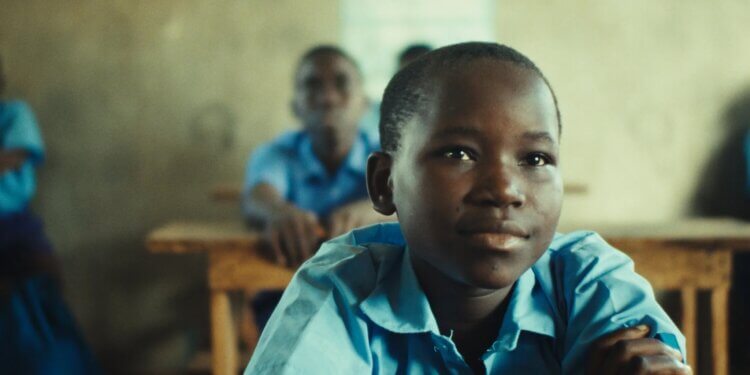Baada Ya Masika (After the Long Rains), set against the backdrop of Watamu’s shores and bursting with the bold and unencumbered innocence of indie films, is a rather strange coming-of-age film to witness – let alone write about. Written, edited, and directed by the young Damien Hauser, whose work I still only have the faintest I grasp of, the film stands out for its localised amateurism that slowly emerges from its cocoon to speak with an authentic frankness that surpasses expectations.
What begins as a seemingly simple narrative of a young school girl, Aisha, given an assignment to question what she wants to be when she grows up soon unravels into a deeper contemplation of the realities of adulthood in her small village. That reality, that almost every adult she encounters has followed a path dictated by their parents before them, is brought to life in a rather earnest narration keeping up with the little girl as she runs across her community. This community, small and unified outside the modernity of city life, sees children’s dreams limited by the scope of the people they grow into and the brief escape of a television. Meanwhile, adults are bound by their daily routines devoid of pauses of sentimentality.
Unlike many local films that would be satisfied playing within this conflict – oscillating between the ambitions of a little girl who dreams of becoming an actress just to escape her little village and see snow for the first time, and her more practical path to be a fisherwoman because the brightest student in her school ended up as one – this film reaches for something more. It expands on themes of gender roles, ambition, loss, inherited trauma, the erosion of culture, and the existential confusion that comes with growing up. Baada Ya Masika digs deeper within its limited setting and characters, daring enough to push past conventions yet delicate enough to remain true to the people it represents.
In many ways, the film is reminiscent of a 40s or 50s European film, marked by modest acting, well-defined dialogue, and an editing style that takes some time to adjust to, Baada Ya Masika is fully aware of its limitations but banks on the credibility of its narrative to gloss over its defects. Electricer Kache Hamisi shines as the film’s protagonist, who, despite her inexperience, still delivers such a layered character arc that stands out against the stilted performances of both the children and adults around her. The dialogue and character interactions – clearly designed for a foreign audience – manage to remain both assimilable and familiar, allowing a more globalized consciousness to overlook the acting.
What stands out undeniably is Hauser’s multifaceted approach to cinematography and compositions. Being in his 20s and still finding his cinematic voice, there is clear ingenuity in how Hauser resists settling on the single, uniform aesthetic that starts off the film. Unobstructed by conventionality, he experiments with an arsenal of visual schemes and disruptions like the shaky hand-held smartphone camerawork, distortions and filtered manipulations of the image to lean into more surreal and psychedelic incursions, and even a CGI-assisted final act that splashes out of nowhere to bring the film to a climax. Although this temerity draws attention to itself somewhat obstructively, it consistently complements and never detracts from the story underneath it.
Scrappy, ambitious, and intimately crafted, Baada Ya Masika is a magical and enchanting film that made me feel like a kid again in the best way possible. Charming and full of whimsy, the film thrives on a rhythmic cultural sensitivity that work despite its imperfections. Hauser, a Swiss filmmaker with a Kenyan mother, has shown his interest in making Kenyan stories. If his future work carries the same authenticity as this, I can’t wait to see what he does next.
Baada Ya Masika is currently screening at the NBO Film Festival.
Enjoyed this article?
To receive the latest updates from Sinema Focus directly to your inbox, subscribe now.











